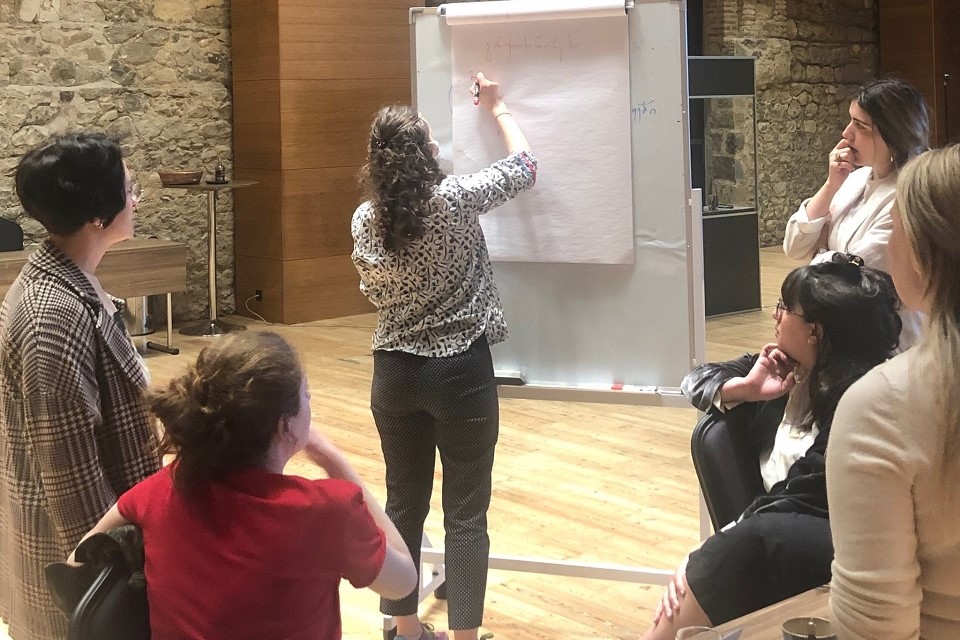Fostering Dialogue and Capacities for Institutionalization of Gender Impact Assessment in Georgia
Date:

Gender Impact Assessment (GIA) is increasingly recognized as an essential instrument for assessing the impacts of laws and policies on the lives of women and men and on broader gender equality. In cooperation with the national partners, UN Women is working towards institutionalization of GIA in Georgia. The reform aims to contribute towards strengthening good governance, gender-responsive and evidence-based policymaking in Georgia.
On 1 April, UN Women organized a stocktaking meeting on institutionalizing GIA in Georgia. The goal of the meeting was to generate political commitment and support towards systemic introduction of GIA as a part of policymaking and law-making processes. The meeting further aimed to raise awareness of decision-makers about GIA as a methodology, its importance and relevance to the gender responsive policy-making and good governance and to discuss and validate the draft legislative amendments package on incorporation of GIA in the law-making cycle. The meeting brought together up to 22 representatives of women’s national machineries from the legislative and executive branches, as well as representatives of the Administration of the Government of Georgia, selected development partners and academia.
“Together with the national partners UN Women is working towards introducing GIA as a mandatory tool in the policy making processes, which is an important step towards fulfilling Georgia’s commitments towards gender equality, but also good governance and better policy making,“ said Kaori Ishikawa, UN Women Country Representative in Georgia.
To further develop national capacities on GIA, UN Women organized the capacity development training around this tool on 4-8 April. As a result of the 5-day training up to 18 representatives of civil society, including gender experts, public policy specialists and researchers strengthened capacities on GIA methodology as well as international benchmarks and best practices on conducting Gender Impact Assessment. “GIA is an effective tool for sound policy making and for ensuring fair distribution of resources between men, women, girls, and boys. As a part of this training, we were introduced to GIA process and methodology, which will enable us to utilize this assessment tool in future,” said training participant Anna Iluridze, gender and inclusion expert.
The initiative was supported within the framework of the “Good Governance for Gender Equality in Georgia” (GG4GEG) project generously funded by the Ministry of Foreign Affairs of Norway.